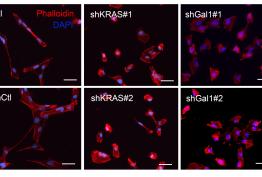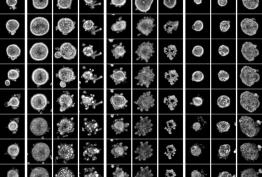A new study reveals a fundamental role of cholesterol in the development of hepatocellular carcinoma (HCC) associated with obesity and type 2 diabetes. Using nutritional and genetic models, IIBB scientists have demonstrated a key role of liver cholesterol as a promoter of the development of HCC linked to the progression of non-alcoholic steatohepatitis (NASH), the most common chronic liver disease due to its association with the epidemic of obesity and insulin resistance. NASH represents a spectrum of liver functional alterations, which begin with the onset of steatosis, or accumulation of fat in the liver. Although this first phase of functional alteration contributes to the sensitization of the fatty liver to additional factors, its role in the progression of NASH to HCC had not been specifically studied. In this study published recently in Cancers (Basel), with Vicent Ribas and Laura Conde de la Rosa as the first authors and directed by Dr. Carmen García Ruiz of the “Mitochondrial Cholesterol, Hepatocarcinogenesis and Neurodegeneration” team at the IIBB have shown, using nutritional and genetic models, that the increase of cholesterol in the liver more than the development of hepatic steatosis per se, determines the progression of EHNA to HCC, being observed in both mice and rats.
One of the most important aspects of the study is the development of HCC in wild type mice subjected to a cholesterol-enriched diet for 10-12 months. This finding is critical because in most HCC models, it is necessary to use genetically modified mouse models of HCC suppressors or promoters. These studies, complemented by the analysis of genes involved in immunotherapy, reveal that the enrichment of cholesterol promotes an environment that inactivates the immune surveillance of the immune system.
Reference article:
Ribas V, Conde de la Rosa L, Robles D, Núñez S, Segalés P, Insausti-Urkia N, Solsona-Vilarrasa E, Fernández-Checa JC, García-Ruiz C. Dietary and Genetic Cholesterol Loading Rather Than Steatosis Promotes Liver Tumorigenesis and NASH-Driven HCC. Cancers (Basel). August 13, 13 (16): 4091.







